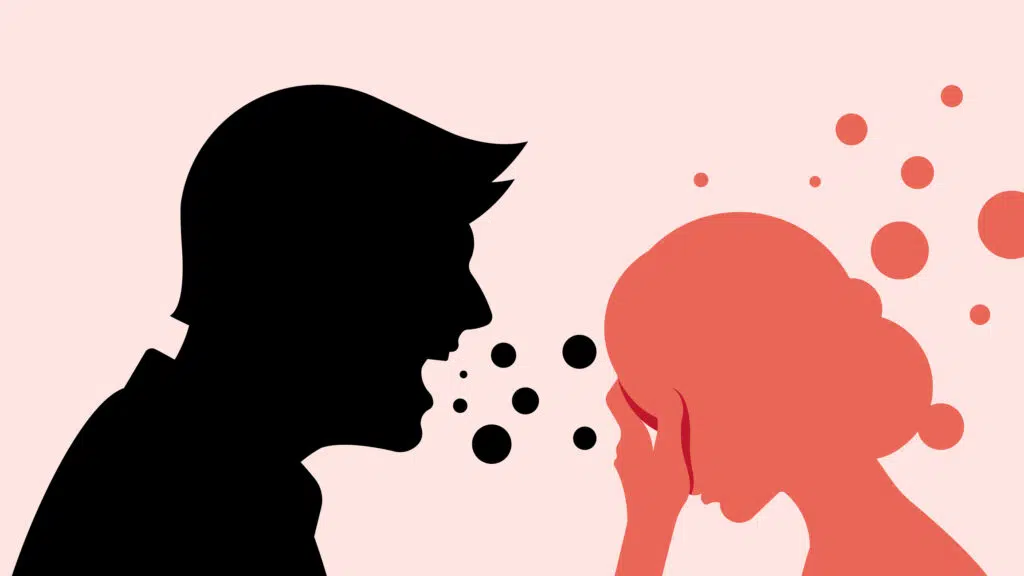Are you seeking a joyful and rewarding relationship? In our quest to find the perfect match, we frequently ignore warning signs that can lead to sorrow. Recognizing these red flags early on can help you avoid future suffering and disappointment.
Let’s look at the top ten relationship red flags to watch out for.
1. Lack of Communication
Good communication is the foundation of any healthy relationship. It promotes openness, honesty, and understanding between partners. However, if you see that your partner is unable to communicate openly and honestly, this could be a red flag. A lack of communication can result in misunderstandings and hatred over time.

2. Disrespect and Lack of Equality
A partnership should be based on mutual respect and equality. Both partners must feel respected and appreciated. Still, if you feel neglected or unequal in any manner, the relationship may not be a good fit for you. This could indicate dismissive conduct, insulting comments, or a lack of respect for your beliefs and boundaries.
3. Controlling Behavior
A strong relationship requires mutual trust and support. Partners should feel free to follow their passions while maintaining their individuality. Yet, a spouse who attempts to regulate your behavior, friendships, or interests may not be acting in your best interests. Controlling conduct can cause feelings of suffocation, isolation, and a lack of freedom.

4. Incompatibility
While opposites attract, inherent incompatibility can cause long-term problems. It is critical to understand when you and your partner have opposing values, ambitions, or lifestyles. Attempting to force a connection with someone who is essentially incompatible with you can result in disappointment and frustration.
It is crucial to be honest with yourself about whether the relationship meets your requirements and if you can see a future together.
5. Trust Issues
Trust is essential in any relationship. It establishes a foundation of protection while allowing for vulnerability and intimacy. If your partner is continuously questioning your behavior or whereabouts, it may indicate deeper trust concerns.
This could be due to past experiences or insecurities, but it is necessary to address these concerns openly and honestly in order to establish a strong foundation of trust.

6. Infidelity
Infidelity can damage trust and end a relationship. If you learn that your partner has been unfaithful, you should address the situation right away. This could include seeking therapy, setting boundaries, or terminating the relationship if trust cannot be reestablished.
7. Refusal to Compromise
Both sides must make compromises in order for a relationship to be successful. Compromise entails being willing to listen to each other’s viewpoints and find common ground. If your partner refuses to meet you halfway, it could be a red flag.
This could take the form of refusing to debate or negotiate crucial issues, as well as a failure to grasp your point of view and demands.

8. Emotional Unavailability
Emotional availability counts for a successful relationship. Partners should be able to connect emotionally and offer support and comfort as needed. However, an emotionally unavailable spouse may be unable to provide you with the necessary support and comfort.
This could show a lack of empathy, dismissiveness of your emotions, or an unwillingness to articulate their feelings.
9. Lack of Accountability
Honesty and accountability are vital components of a healthy partnership. Partners should accept responsibility for their acts and apologize when they are incorrect. If your partner refuses to take responsibility for their behavior, this may be a warning sign. This could show blame-shifting, defensiveness, or a lack of remorse for their mistakes.

10. Constant Criticism
Constructive criticism can help with personal development, but persistent negativity is unhealthy. Partners in a good relationship should encourage and support each other’s objectives and desires.
If your partner often criticizes you, it indicates a harmful interaction. This could emerge as nitpicking, demeaning comments, or a failure to recognize your accomplishments and abilities.

Conclusion
Recognizing relationship red flags is important for maintaining your mental health. Addressing these challenges early on can help you have a healthy and rewarding relationship. Remember to talk openly and honestly with your partner, emphasizing mutual respect and trust.
This allows you to avoid heartbreak while also creating a relationship that provides you with joy and contentment.
FAQs
What are relationship red flags?
Relationship red flags are signals that a relationship is unhealthy or unsatisfactory. They can include poor communication, disrespect, controlling behavior, incompatibility, trust issues, infidelity, refusal to compromise, emotional unavailability, a lack of accountability, and frequent criticism.
How can I recognize relationship red flags?
Pay attention to how your partner interacts with you. Look for patterns of disrespect, control, or a lack of emotional availability. Trust your instincts, and do not overlook warning flags.
What should I do if I notice relationship red flags?
Discuss the difficulties with your partner openly and honestly. If they are unwilling to change or acknowledge the problems, it might be time to reassess the relationship.
Can relationship red flags be resolved?
In certain circumstances, partners can work past relationship red flags by communicating openly and being willing to change. However, if the concerns are serious and cannot be handled, it may be preferable to split paths.
How can I protect myself from heartbreak in a relationship?
Be honest with yourself about what you want and deserve in a relationship. Communicate openly with your partner, and do not disregard red flags. Surround yourself with supportive friends and family who have your best interests in mind. Remember that you deserve a relationship that provides you with joy and fulfillment.

